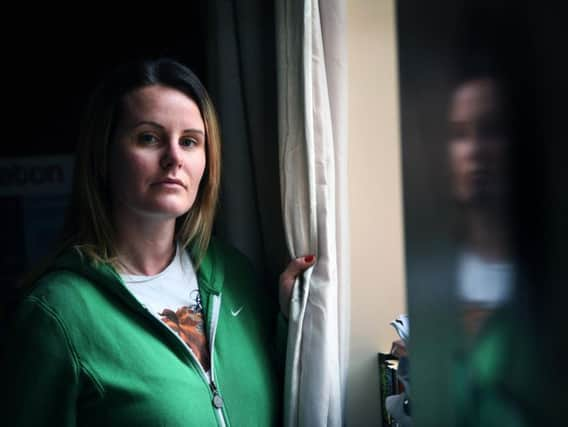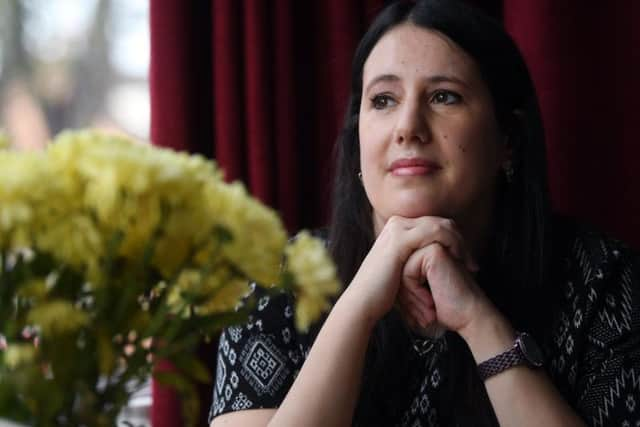'Having to fight the Government was ridiculous' - mum's battle over disability payment


Her diagnosis with the relapsing remitting form of the neurological condition two years ago came as she was suffering with depression following the premature birth of her youngest child, and what followed, in her words, was “a year of torment”.
After years of symptoms, including nerve pain and the loss of sight in her left eye, which led to her being forced to give up her cleaning business, Mrs Robinson, 32, of Scarborough, applied for PIP in August 2016, shortly after she was diagnosed.
Advertisement
Hide AdAdvertisement
Hide AdAfter an assessment, she received zero points for PIP, and after a mandatory reconsideration saw the decision upheld, she went to an appeal.


It took 11 months to get to the tribunal, where she was awarded PIP indefinitely, with a higher rate of daily living allowance and standard rate of mobility support.
She said: “I’d only just been through the turmoil of a diagnosis and was already fighting hard to live my life. So having to then fight the government as well was ridiculous.
“It wasn’t just me that was affected, it was four children, two of whom were under two at the time. One of the things they said at my assessment was that I couldn’t have depression because I had a good complexion - it was a joke.”
She said she found the whole process “degrading”.
Advertisement
Hide AdAdvertisement
Hide Ad“I couldn’t even fill the forms in myself as I couldn’t hold a pen, I thought I was going to lose everything, my home, my car.,” she said.
“To then go from having zero points to enhanced personal care was baffling. It clearly showed I had been entitled to it the whole time and my struggles hadn’t gone unnoticed.”
“Utter relief” was also felt by Rebecca Wells, 33, of Bridlington, after her appeal tribunal in September.
Miss Wells lives with myotonic dystrophy, a muscle weakening condition that is a form of muscular dystrophy. Since her diagnosis, she has had to give up her job in retail. Her father had the condition, and her brother has also been recently diagnosed.
Advertisement
Hide AdAdvertisement
Hide AdShe had been receiving ESA but had her entitlement reduced from £125 per week to £72 a week after a reassessment. It took over a year to get to an appeal tribunal, where a decision was made in her favour.
“For a year I battled and battled,” she said. “The appeal process is so difficult, especially when you feel like I do
“My condition affects everything I do, and I am in pain every day. Since I was diagnosed three years ago my life has completely changed - you realise it’s not going to map out like you thought it would.
“If it hadn’t been for the support of my family and my partner, there’s no way I could’ve gone through the appeal - I can see why people would just give up.”
Advertisement
Hide AdAdvertisement
Hide AdMiss Wells was advised in her appeal process by the advocacy service at charity Muscular Dystrophy UK, which saw a 36 per cent increase in PIP cases between 2016 and 2017.
She added: “It was utter relief when the decision was made. I owed thousands of pounds to people, and it meant I could become solvent again.”
A DWP spokesperson said: “We are committed to ensuring that people with health conditions get the support they’re entitled to. Decisions are made following consideration of all the information provided by the claimant at the time, including supporting evidence from their GP or medical specialist.
“All claimants have the right to a mandatory re-consideration of any decision, and can further appeal to an independent tribunal, with the opportunity to present any further evidence to support their claim. Where decisions are overturned at appeal, around 4 per cent of all decisions, this is usually because the claimant has provided more information on their condition.”